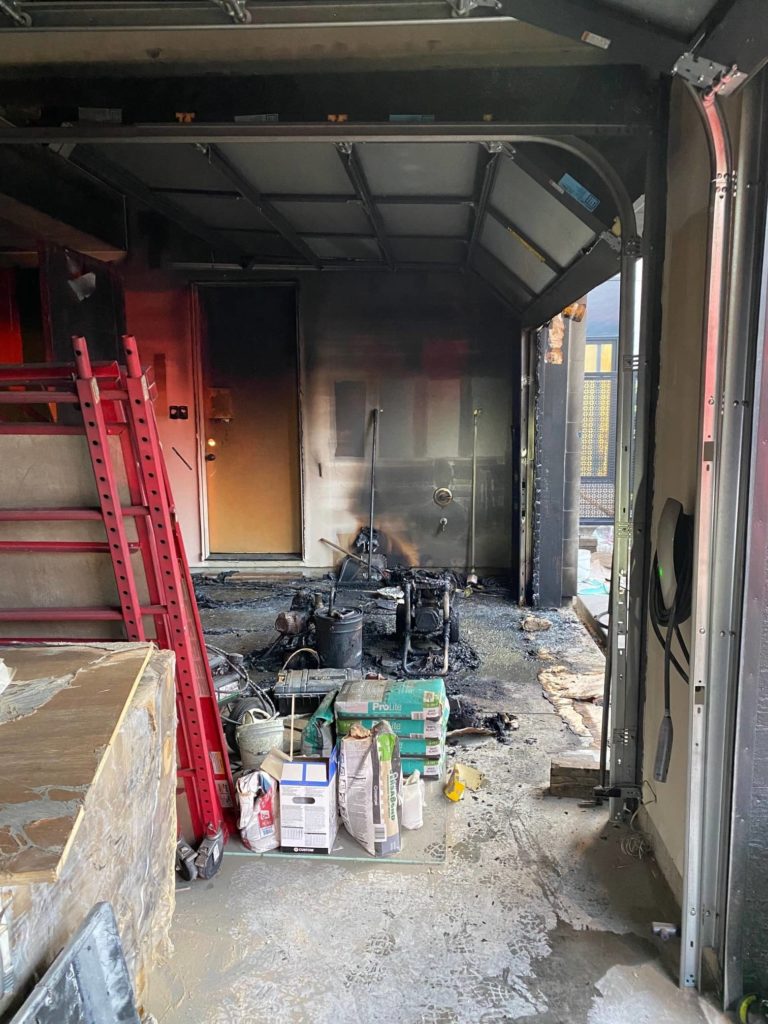Bend firefighters were dispatched to a reported house fire near the Old Mill just before 8 a.m Wednesday. Mason contractors arriving to the house found a fire in the garage and called 911. The contractors were able to use a garden hose to put out the rest of the fire before crews arrived. Crews ensured the fire had not spread into other areas of the home and removed the smoke from the main part of the house. The custom built house, nearly completed, was not occupied at the time as it was still under construction. An estimated at $50,000 worth of damage was done to the structure, garage doors and contents.
The cause was determined to be improperly disposed oily rags left by the painters the night before. The painters had been staining the interior doors in the garage. When they finished the rags and brushes were put into a bucket and the garage doors closed behind them. Luckily, with the new construction methods used, the garage was mostly airtight and allowed the fire to put itself out due to a lack of oxygen. It wasn’t until the crews arrived this morning and open the doors up that it got enough air back to start flaming again. This lack of oxygen prevented this from being a complete loss of this custom-built home along the Deschutes River.
Bend Fire Department reminds everyone, homeowners and professionals alike, to be extremely cautious with oily rags when done with their projects. Properly disposing can be done very simply by putting all oil-soaked rags into water and keeping them there until disposal.
The most common type of Spontaneous Combustion fires is those caused by improperly disposed of oil and stain-soaked rags. Examples of these products are oil-based paints and stains, teak and linseed oils, varnishes and polyurethane, paint thinners, etc. Spontaneous combustion of oily rags occurs when rag or cloth is slowly heated to its ignition point through oxidation. A substance will begin to release heat as it oxidizes. If this heat has no way to escape, like in a pile, the temperature will raise to a level high enough to ignite the oil and ignite the rag or cloth. The fire from this can spread quickly to other combustibles and cause great damage to your home or property.
Prevention of spontaneous combustion fires begins with good housekeeping. A clean work area can prevent a fire from spreading and getting bigger by not allowing the fire fuel to burn. Also understanding the potential for self-heating of rags soiled with oils such as linseed oil and turpentine is a key step in eliminating these preventable fires.
To properly and safely dispose of oily rags, Bend Fire Department recommends the following steps: · Use a container with a tight-fitting lid. A metal can is preferable, but a plastic can or zip lock bag can work if nothing else is available. · Place soiled and used rags inside and then fill the rest the way with water, seal the top and do not open it. This will prevent the oils from oxidizing, and thus keeping the rags from heating up and igniting. · Contact your local garbage disposal company for their policy on disposal of the can and contents. Some companies will permit disposal in regular household trash.

